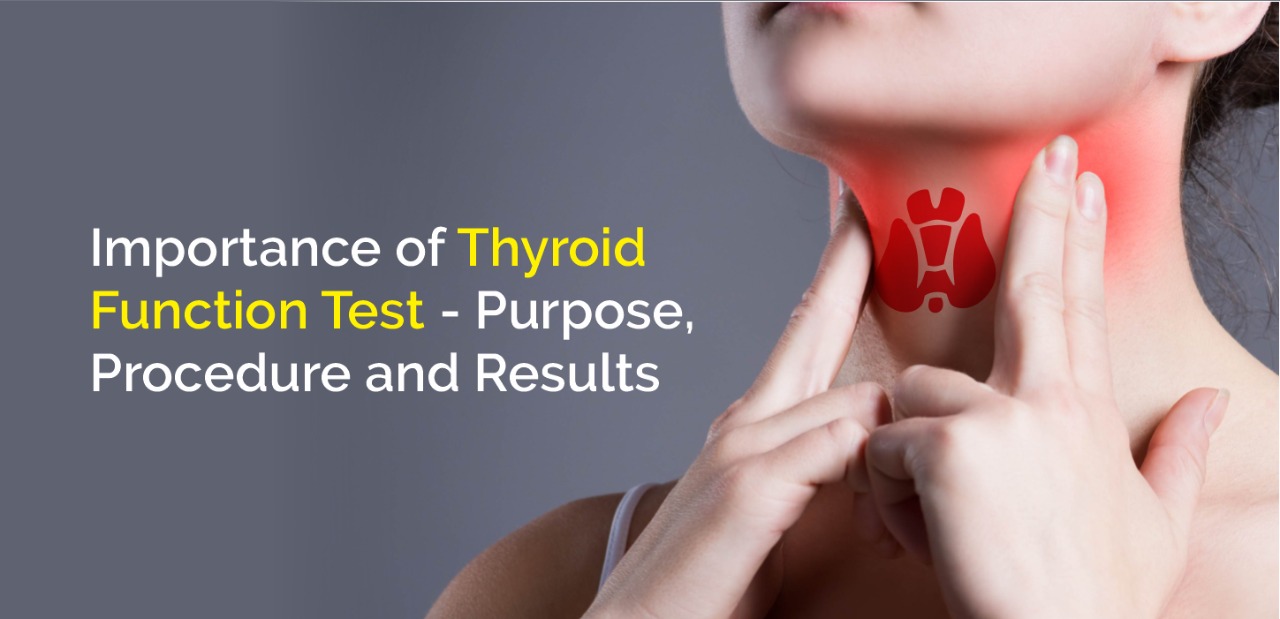

Thyroid disorders are one of the commonest diseases in the world. According to a report, about 11% of Indians suffer from thyroid disorders. At the same time, 2% of the UK's population and 4.6% of the US population suffer from thyroid disorders. Diagnosis and treatment of this disorder need a thyroid function test, which helps determine the levels of hormones like Triiodothyronine(T3) and thyroxine(T4).
The thyroid gland sits beneath the lower front part of the neck. It is responsible for several vital processes in the body like neurological growth, and metabolism, to name a few.
Two Manifestations of Thyroid Disorders
- Hypothyroidism- lower levels of crucial hormones
- Hyperthyroidism- overproduction of thyroxine
Hypothyroidism is caused due to lower levels of triiodothyronine(T3) and thyroxine(T4) which can result in symptoms like
- Energy drain
- Heightened depression and anxiety
- Weight gain
Similarly, hyperthyroidism, where the levels of hormones are higher, has the following symptoms
- Heightened anxiety
- Weight loss
- Involuntary trembling of different parts
A thyroid function test helps determine hormone levels to detect hypothyroidism and hyperthyroidism. Here, we will discuss different tests necessary for thyroid care. Let’s discuss different types of tests.
Consult a Doctor about your Medical History
If you experience any symptoms related to hypothyroidism or hyperthyroidism, immediately consult a doctor. The doctor needs to know your medical history and current disposition. It is better to inform your doctor if you are pregnant or under any medication before taking the test. Pregnancy or any particular medication can affect hormonal levels in your body, rendering the thyroid function tests false positives.
According to your present condition, the doctor will prescribe tests that a lab technician conducts by drawing your blood.
Here are different types of thyroid tests and their optimal levels for your reference.
Types of Thyroid Tests
1. Triiodothyronine(T3), Thyroxine(T4), and Thyroid Stimulating HormonesTest(TSH) Levels
- Thyroxine tests(T4)- It helps in measuring the level of T4 or thyroxine, which can cause hypothyroidism or hyperthyroidism. The normal range for an adult is 5.0 – 11.0 ug/dL
- Free Thyroxine(FT4)- This is a thyroid function test that helps in eliminating the effect of proteins that bind thyroxine. The normal range of FT4 for an adult is 0.9 - 1.7 pg/dL
- Triiodothyronine(T3)- Helps determine the severity of hyperthyroidism by measuring the levels of T3 hormones. The normal range of T3 for an adult is 100 - 200 ng/dL
- Free Triiodothyronine(FT3)- Helps eliminate proteins that naturally bind triiodothyronine and can cause a false positive report. The normal range of FT3 for an adult is 2.3 - 4.1 pg/mL
2. TBG Tests or Resin Uptake
It is a test that helps check the capacity of thyroxine-binding globulin(TBG), a protein linked with the thyroid hormone in your body. If T3 or triiodothyronine levels are high, the TBG capacity is low. Lower TBG levels indicate protein deficiency or kidney problems. Higher TBG than the optimal levels indicates too much estrogen.
Diagnosis and Thyroid Care
Once you have the lab results, you can consult with an Assurance endocrinologist for expert advice on the line of treatment. Experts at NH Assurance can suggest an ultrasound test or a thyroid uptake test to determine if any tumour affects the thyroid gland. After these tests, doctors may also have you checked for cancer through a sampling of thyroid tissue.
After thyroid function tests and ruling out the possibility of cancer, your doctor may prescribe you medications. Furthermore, there will be regular follow-ups and additional tests to ensure optimal levels.
Consulting a doctor and going through tests when you experience symptoms can be overwhelming. To make the process hassle-free, you can opt for the thyroid care package, which offers expert solutions on thyroid disorder management.
